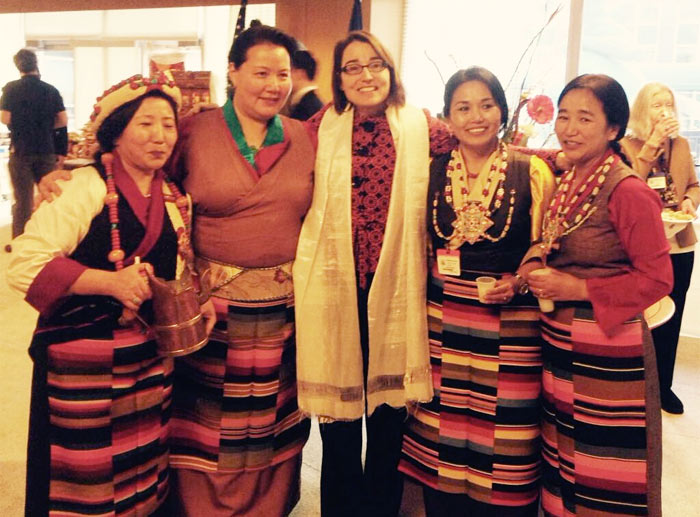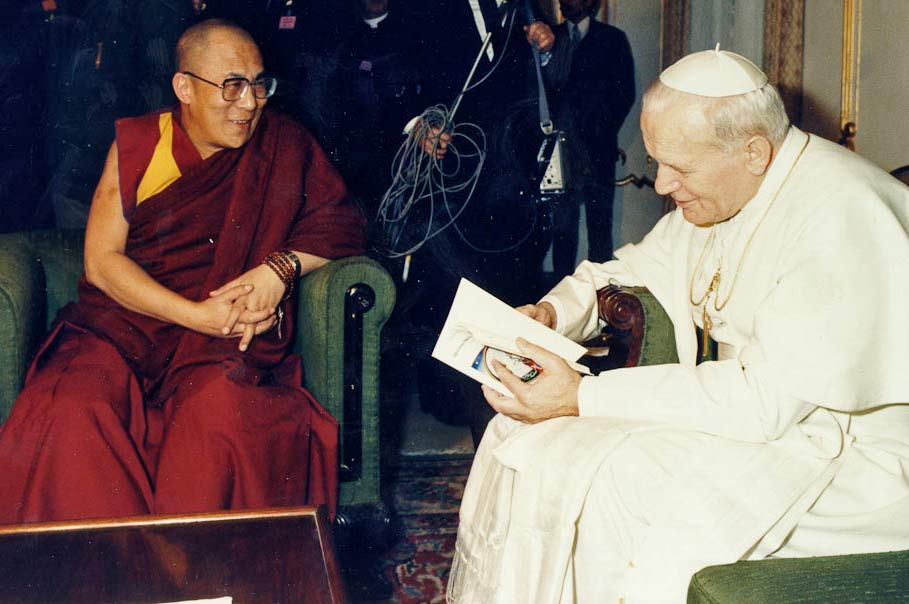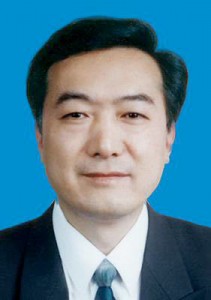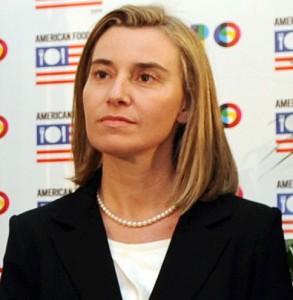On December 10, 2014, lovers of peace, friends, well-wishers and followers of His Holiness the Dalai Lama celebrate the 25th anniversary of the bestowal of the Nobel Peace Prize to him. His Holiness is of course is in Rome to participated in the Nobel Peace Laureates Summit, which has now been relocated there.
It is a cliché to say what a difference 25 years can make. But in the case of His Holiness the Dalai Lama, these two and a half decades have indeed cemented his place as a statesman and a conscience of the world. Today, the Dalai Lama and peace/compassion have virtually become synonymous.
In 1989, I was working in Dharamsala and so was part of the collective Tibetan rejoicing of the event. We, at least I, then interpreted the prize solely in the context of Tibet, and Tibet alone. We saw this as Tibet’s day in the sun. Fast forward to 2014 and I reread His Holiness’ acceptance speech (of December 10, 1989) as well as his Nobel lecture (of December 11, 1989), and the Presentation Speech by Mr. Egil Aarvik, Chairman of the Norwegian Nobel Committee. I now have a fresh perspective of the expanse of the Dalai Lama’s impact.
His Holiness’ remarks in Oslo in 1989 appear to me as the germinating ground for the philosophy for which he has become well-known today. This includes his dialogue with the scientific community, his adherence to nonviolence, and, above all, his three main commitments: promotion of human values, promotion of religious harmony and promotion of Tibetan culture.
Let me expand.
By the very awarding of the prize to him, the Nobel Committee acknowledged the Dalai Lama as a proponent of peace and nonviolence. In his Award Presentation Speech, Mr. Egil Aarvik, Chairman of the Nobel Committee, said, “In view of this, fewer and fewer people would venture to dismiss the Dalai Lama’s philosophy as utopian: on the contrary, one would be increasingly justified in asserting that his gospel of nonviolence is the truly realistic one, with most promise for the future. And this applies not only to Tibet but to each and every conflict. The future hopes of oppressed millions are today linked to the unarmed battalions, for they will win the peace: the justice of their demands, moreover, is now so clear and the normal strength of their struggle so indomitable that they can only temporarily be halted by force of arms.”
In the Tibetan cultural context, the Dalai Lama is also referred to as Zamling Shidey Depon ( “pilot of world peace”) and he continues to be one today.
The Dalai Lama’s stress on the need for religion to have dialogue with science can also be perceived in his Nobel remarks.
In his Nobel Peace Prize Acceptance Speech on December 10, 1989, the Dalai Lama said, “With the ever growing impact of science on our lives, religion and spirituality have a greater role to play reminding us of our humanity. There is no contradiction between the two. Each gives us valuable insights into the other. Both science and the teachings of the Buddha tell us of the fundamental unity of all things. This understanding is crucial if we are to take positive and decisive action on the pressing global concern with the environment.”
Today, the Dalai Lama has established a strong foundation for dialogue between religion and science through the Mind & Life initiative. In the process, he has had an impact on the thinking of the scientific community, particularly those working in the field of neuroscience, through his sharing of the Buddhist perspective.
I also want to believe that through his Nobel remarks, the Dalai Lama was also crystalizing his now well-known three commitments.
His Holiness began his Nobel lecture, delivered on December 11, 1989, by saying, “Thinking over what I might say today, I decided to share with you some of my thoughts concerning the common problems all of us face as members of the human family. Because we all share this small planet earth, we have to learn to live in harmony and peace with each other and with nature.”
He continued, “The realisation that we are all basically the same human beings, who seek happiness and try to avoid suffering, is very helpful in developing a sense of brotherhood and sisterhood; a warm feeling of love and compassion for others. This, in turn, is essential if we are to survive in this ever shrinking world we live in. For if we each selfishly pursue only what we believe to be in our own interest, without caring about the needs of others, we not only may end up harming others but also ourselves.”
In another words, His Holiness was stressing on the fundamental human values that all human beings share.
The Dalai Lama was addressing the issue of religious harmony when he said in the same lecture, “As a Buddhist monk, my concern extends to all members of the human family and, indeed, to all sentient beings who suffer. I believe all suffering is caused by ignorance. People inflict pain on others in the selfish pursuit of their happiness or satisfaction. Yet true happiness comes from a sense of brotherhood and sisterhood. We need to cultivate a universal responsibility for one another and the planet we share. Although I have found my own Buddhist religion helpful in generating love and com-passion, even for those we consider our enemies, I am convinced that everyone can develop a good heart and a sense of universal responsibility with or without religion.”
As for Tibet, the Dalai Lama said this in December 1989, “The awarding of the Nobel Prize to me, a simple monk from faraway Tibet, here in Norway, also fills us Tibetans with hope. It means, despite the fact that we have not drawn attention to our plight by means of violence, we have not been forgotten. It also means that the values we cherish, in particular our respect for all forms of life and the belief in the power of truth, are today recognised and encouraged. It is also a tribute to my mentor, Mahatma Gandhi, whose example is an inspiration to so many of us. This year’s award is an indication that this sense of universal responsibility is developing. I am deeply touched by the sincere concern shown by so many people in this part of the world for the suffering of the people of Tibet. That is a source of hope not only for us Tibetans, but for all oppressed people.”
So, 25 years later what is the lesson that we can take from the bestowal of the Nobel Prize to the Dalai Lama. I can only repeat what the Nobel Committee Chairman said in 1989, “ In awarding the Peace Prize to H.H. the Dalai Lama we affirm our unstinting support for his work for peace, and for the unarmed masses on the march in many lands for liberty, peace and human dignity.”






